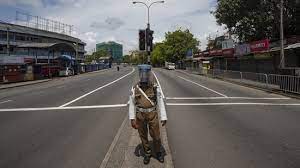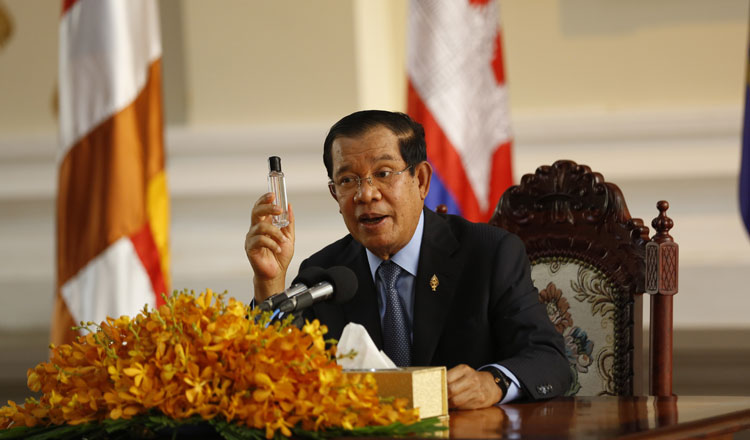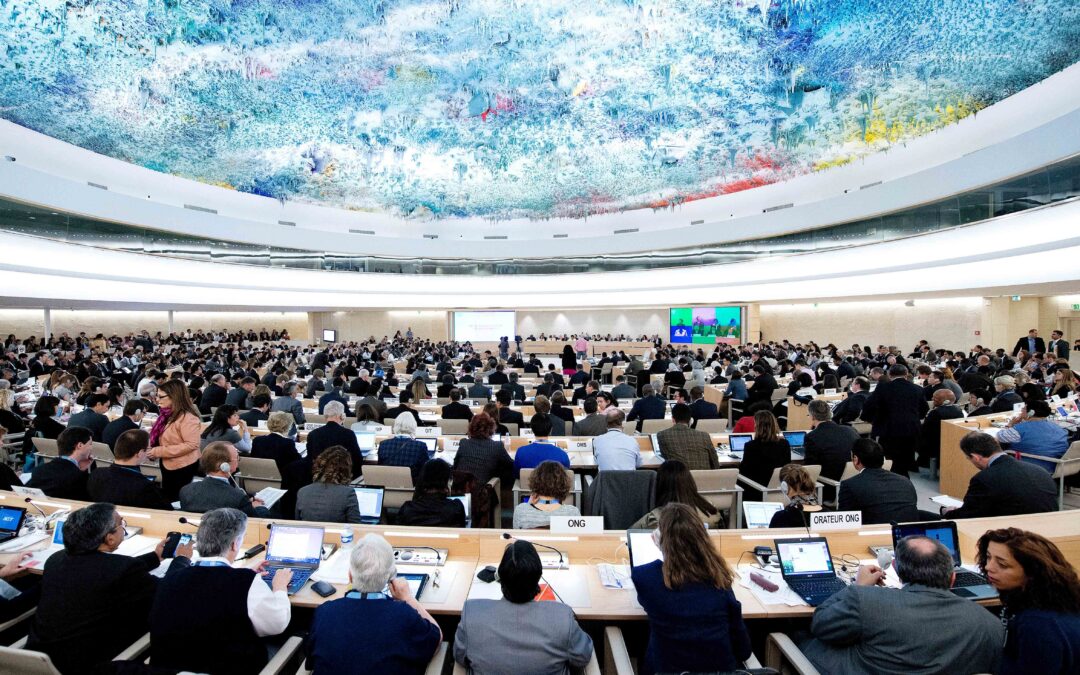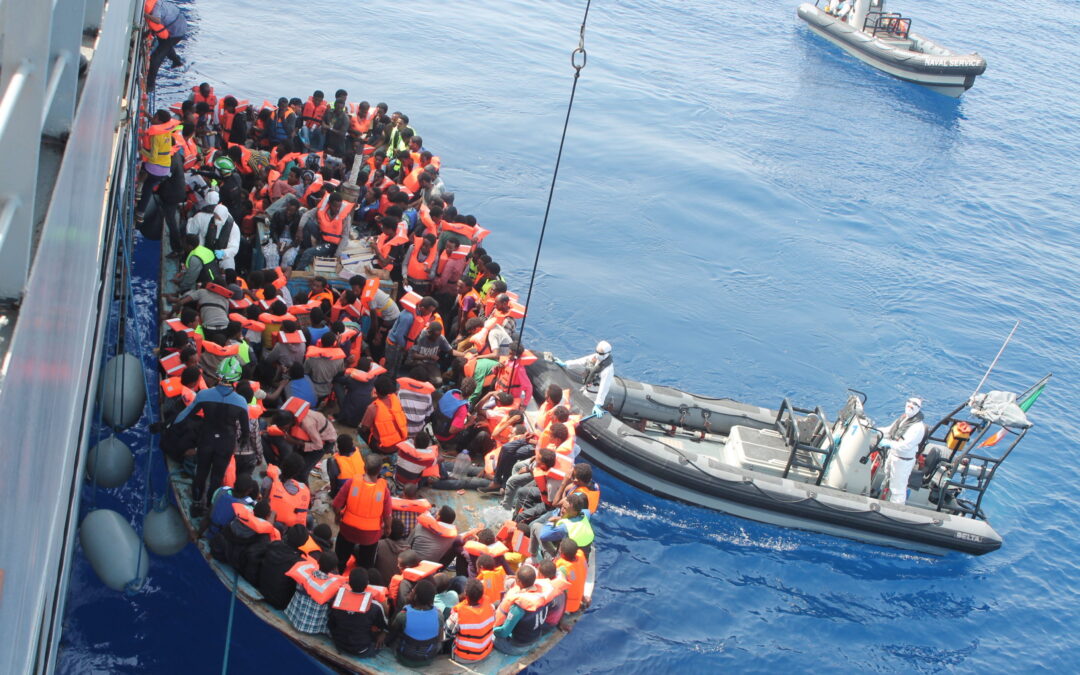
Sep 2, 2021 | News
The Sri Lankan Government must stop harassing and threatening journalists, government officials, doctors and social media users with legal actions for criticizing the State response to COVID-19, said the ICJ today.

Apr 8, 2020 | News
The ICJ today warned that Cambodia’s draft Law on National Administration in the State of Emergency (“State of Emergency bill”) violates basic rule of law principles and human rights, and called on the Cambodian government to urgently withdraw or amend the bill in accordance with international human rights law and standards.
Last Friday, government spokesperson Phay Siphan explained that the government needed to bring a State of Emergency law in force to combat the COVID-19 outbreak as “Cambodia is a rule of law country”. The bill is now before the National Assembly and, if passed by the Assembly, will likely be considered in an extraordinary session convened by the Senate. The law will come into force once it has been signed by the King – or in his absence, the acting Head of State, Senate President Say Chhum.
“The Cambodian government has long abused the term “rule of law” to justify bringing into force laws or regulations that are then used to suppress free expression and target critics. This bill is no different,” said Frederick Rawski, ICJ’s Director for Asia and the Pacific.
“Any effective response to the COVID-19 outbreak must not only protect the rights to health and life, but be implemented in accordance with Cambodia’s human rights obligations and basic principles of the rule of law.”
Several serious shortcomings are evident in the State of Emergency bill, including:
- No delineation of a timeline for the imposition of a state of emergency, or criterial process for its termination. The bill provides vaguely that such declaration “may or may not be assigned a time limit. In the event that a state of emergency is declared without a clear time limit, such a state of emergency shall be terminated when the situation allows it” (article 3);
- Expansion of government powers to “ban or restrict” individuals’ “freedom of movement, association or of meetings of people” without any qualification to respect the rights to association and assembly in enforcing such measures (article 5);
- Expansion of government powers to “ban or restrict distribution of information that could scare the public, (cause) unrest, or that can negatively impact national security” and impose “measures to monitor, observe and gather information from all telecommunication mediums, using any means necessary” without any qualification to respect the rights to privacy, freedom of expression and information in enforcing such measures (article 5);
- Overbroad powers for the government to “put in place other measures that are deemed appropriate and necessary in response to the state of emergency” which can allow for significant State overreach (article 5);
- Severe penalties amounting to up to 10 years’ imprisonment of individuals and fines of up to 1 billion Riel (approx. USD 250,000) on legal entities for the vaguely defined offence of “obstructing (State) measures related to the state of emergency” where such obstruction “causes civil unrest or affects national security” (articles 7 to 9);
- No specific indication of which governmental authorities are empowered to take measures under the bill, raising concerns that measures could be taken by authorities or officials in an ad-hoc or arbitrary manner in violation of the principle of legality;
- No indication of sufficient judicial or administrative oversight of measures taken by State officials under the bill – The bill states that the government “must inform on a regular basis the National Assembly and the Senate on the measures it has taken during the state of emergency” and that the National Assembly and the Senate “can request for more necessary information” from the government (article 6) but does not clarify clear oversight procedures for accountability.
“The State of Emergency bill is a cynical ploy to further expand the nearly unconstrained powers of the Hun Sen government, and will no doubt be used to target critical comment on the government’s measures to tackle COVID-19,” said Rawski.
“If passed in its current form, this bill will reinforce the prevailing lack of accountability which defines the government in Cambodia. The government’s time would be better spent developing genuine public health policy responses to the crisis.”
Contact
Frederick Rawski, ICJ Asia Pacific Regional Director, e: frederick.rawski(a)icj.org
To download the statement with detailed background information, click here.
See also
ICJ report, ‘Dictating the Internet: Curtailing Free Expression, Opinion and Information Online in Southeast Asia’, December 2019
ICJ report, ‘Achieving Justice for Gross Human Rights Violations in Cambodia: Baseline Study’, October 2017
ICJ, ‘Cambodia: continued misuse of laws to unduly restrict human rights (UN statement)’, 26 September 2018
ICJ, ‘Misuse of law will do long-term damage to Cambodia’, 26 July 2018
ICJ, ‘Cambodia: deteriorating situation for human rights and rule of law (UN statement)’, 27 June 2018
ICJ, ‘Cambodia human rights crisis: the ICJ sends letter to UN Secretary General’, 23 October 2017

Mar 11, 2020 | Advocacy, Non-legal submissions
ICJ has joined other NGOs in urging India, Pakistan and the Human Rights Council, to take action to address the grave situation for human rights in Jammu & Kashmir.
The joint statement read as follows:
“Our organizations express grave concern over the human rights situation in Jammu & Kashmir, where the authorities imposed severe restrictions after a decision to revoke constitutional autonomy on 5 August 2019, including one of the world’s longest internet shutdowns, which the Indian Supreme Court has said violates the right to freedom of expression.
Hundreds were arbitrarily arrested, and there are some serious allegations of beatings and abusive treatment in custody, including alleged cases of torture. Three former chief ministers, other leading politicians, as well as separatist leaders and their alleged supporters, remain in detention under the Public Safety Act (PSA) and other abusive laws, many without charge and in undisclosed locations outside of Jammu & Kashmir. This violates fair trial safeguards of the criminal justice system and undermines accountability, transparency, and respect for human rights. Journalists and human rights defenders have been threatened for criticizing the clampdown. These violations, as those committed over the past decades, are met with chronic impunity.
We urge the government of India to ensure independent observers including all human rights defenders and foreign journalists are allowed proper access to carry out their work freely and without fear, release everyone detained without charge, and remove restrictions on the rights to freedom of expression and freedom of movement, including where they have been denied the right to leave the country by being placed on the ‘Exit Control List’.
We also call on the governments of India and Pakistan to grant unconditional access to OHCHR and other human rights mechanisms to Kashmir.
We further urge the Council to establish an independent international investigation mechanism into past and ongoing crimes under international law and human rights violations by all parties in Kashmir, as recommended by the UN High Commissioner for Human Rights.
Thank you.
- Amnesty International
- Asian Forum for Human Rights and Development (FORUM-ASIA)
- CIVICUS – World Alliance for Citizen Participation
- Human Rights Watch
- International Commission of Jurists
- International Federation for Human Rights Leagues (FIDH)
- International Service for Human Rights
- World Organisation Against Torture (OMCT)”

Mar 3, 2020 | News
The ICJ today called on the Greek authorities to withdraw their decision to close its border with Turkey for “national security” reasons as it constitutes a clear breach of the country’s obligations under international refugee and human rights law as well as EU law.
Prime Minister Kyriakos Mitsotakis has ordered the closure of the border with Turkey for “national security” reasons as thousands of refugees have been arriving at the border with Greece.
The ICJ said that the decision to close the border to migrants and refugees coming from Turkey breaches their right to seek asylum, the principle of non-refoulement and the prohibition of collective expulsion, which Greece must uphold under international human rights and refugee law and the EU Charter.
“Any violence and push-backs occurring at the border and at sea must stop and the persons responsible for acts of violence must be duly investigated and prosecuted. Respect for human rights principles that form part of the EU’s founding values require that refugees are not pushed back at the borded,” said Massimo Frigo, Senior Legal Adviser for the ICJ Europe and Central Asia Programme.
“Assistance should be centred on fostering access to asylum and not on strengthening border control where, in the current situation, EU authorities, such as Frontex, risk assisting in human rights violations,” he added.
The ICJ calls on the European Union to immediately set up a relocation plan with the Greek authorities to allow them to properly process asylum applications without placing refugees in dire reception conditions, such as those existing for refugees on the Greek islands.
The ICJ, together with ECRE and the Greek Refugee Council has launched a complaint against Greece before the European Committee of Social Rights on the degrading conditions of migrant children in Greece (ICJ and ECRE v. Greece).
Background
The movement of refugees comes after the declaration by President Recep Tayip Erdogan not to continue to retain on its territory Syrian refugees under the so-called “EU-Turkey statement”, following the armed conflict in Idlib (Syria).
Under this “statement”, Turkey had previously agreed to retain Syrian refugees on its territory and to accept Syrian refugees that reached Greek territory without their request of international protection being examined by the Greek authorities.
On the basis of the same “statement”, the EU had agreed to resettle some of the Syrian refugees in its Member States.
Contact
Massimo Frigo, Senior Legal Adviser, ICJ’s Europe and Central Asia Programme, t: +41 22 979 3805; e: massimo.frigo(a)icj.org

Sep 16, 2019 | Advocacy, News
Antonio Guterres should publicly condemn China’s widespread violations of the rights of its Muslim minority citizens, especially in Xinjiang Province, the ICJ demanded in a joint letter submitted along with Amnesty International, the International Federation for Human Rights (FIDH), Human Rights Watch, and the World Uyghur Congress.
The joint letter urged the UN Secretary-General to call for an end to widespread arbitrary detention of Muslim and minority communities through the immediate closure of Xinjiang’s ‘political education’ camps. Reports by the United Nations and human rights organizations have estimated that more than one million Muslims have been interned in extra-legal ‘political education’ detention camps.
“In the past few years, China’s violations in Xinjiang, including arbitrary detention, ill-treatment, pervasive surveillance and political indoctrination of Turkic Muslims, have intensified, and continue to worsen,” said Sam Zarifi, ICJ’s Secretary General.
“Quiet diplomacy has not worked. Mr. Guterres must exercise the full extent and power of his mandate as leader of the United Nations to demand and ensure protection of the rights of everyone in China, including all individuals in Xinjiang.”
The joint letter urged the UN Secretary-General to publicly support the creation of a UN fact-finding mission to assess the scale and nature of crimes under international law and human rights violations in Xinjiang. It further called on the UN Secretary-General to refrain from unqualified praise of China’s ‘Belt and Road’ Initiative – an investment initiative in which Xinjiang is a centerpiece – and to meet with representatives from the Uyghur community to hear first-hand of their plight.
“China has exerted immense and often inappropriate political pressure on individuals, governments and organizations criticizing its human rights violations,” said Zarifi. “The United Nations must push back against China’s political pressure and provide principled and steadfast leadership to end China’s political and cultural repression, and ongoing human rights violations in Xinjiang.”
Public criticism of China’s actions in Xinjiang has been growing. In August 2018, a member of the UN Committee on the Elimination of Racial Discrimination noted that China’s treatment of its Muslim minority citizens in Xinjiang had turned the region into a “‘no rights’ zone” with individuals being treated as “enemies of the State based on nothing more than their ethno-religious identity”. In March 2019, the UN High Commissioner for Human Rights, Michelle Bachelet, highlighted the need for her office to gain full access to facilitate independent and impartial investigation into ‘wide patterns of enforced disappearances and arbitrary detentions’ in the region. On 10 July 2019, 25 countries issued a joint statement calling on China to refrain from subjecting Uyghurs and other Muslim and minority communities in Xinjiang to arbitrary detention, surveillance and restrictions on freedom of movement.









